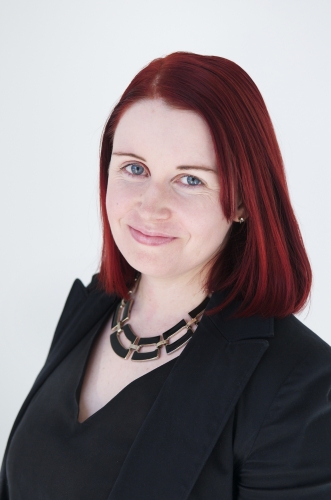Speech pathologist
Rosie Martin was recognised as the 2017 Tasmanian Australian of the Year for her pro-bono work in prisons in the fields of adult literacy, and parenting communication through the circle of trust method. Her work not only improved their ability to communicate and build relationships, changing the trajectory of their lives beyond detention, but also brought hope to their families’ lives.
Poor social communication skills, ability to recognise and respond to the communication of others, and difficulties managing emotions. In a report from the (UK) Royal College of Speech and Language Therapists last year, it was found that 60% of children in contact with youth justice services present with speech, language and communication difficulties – and recent Australian headlines have indicated previously unidentified high levels of incarcerated individuals with intellectual disability and/or traumatic brain injury, conditions which are regularly paired with communication impairment.
Subscribe for FREE to the HealthTimes magazine
The role of speech pathologists in language and social development has, to date, been underrecognised by institutional bodies, despite the consensus that better communication skills can improve children’s lives. But Mary Woodward from Speech Pathology Australia has been touring the country on a mission to change that.
“Young people with language difficulties struggle to acquire literacy, they struggle in school, disengage with education, and they are more likely to engage in crime. It is here that their behaviour is recognised – and their carers have missed the opportunity to identify underlying reasons as to what is causing the problems.”
Woodward has just taken on a new role as National Advisor for Justice and Mental Health, where she has been meeting with state and federal representatives of the justice system, advising on ways to improve communication and literacy programs within correction and rehabilitation centres, in order to address mental health problems in youth.
FEATURED JOBS
Frontline Health Brisbane
Frontline Health Brisbane
Frontline Health Brisbane
“I recently travelled to Western Australia to meet with policy advisors, along with the commissioner for corrective services and the commissioner for young people. There was lots of interest in how to address these issues, such as setting up an independent intermediary pilot scheme based on one that operates in England and Wales."
“A similar pilot is running in Victoria, whereby speech pathologists assist police or court officials as part of the justice system in assessing and managing communication difficulties, such as identifying communication breakdowns and supporting the process throughout cross examination, interviews, and the like. The speechies are acting on behalf of the court, not the defendants.”
When it comes to early intervention, there is a lack of funding for community-based paediatric speech pathologists, Woodward says, with free or subsidised treatment ending at five years of age. It is the people who are less likely to be able to access or afford private therapy who need it the most. School counsellors, community health nurses and GPs play a big role in picking up the red flags which can include:
An inability to initiate or maintain peer friendships; struggling with literacy; missing the point in a conversations; providing brief or monosyllabic answers; being aggressive to avoid questions; using common words out of context; and having difficulties engaging in conversation.
With proper treatment of communication difficulties through a tailored speech pathologist treatment plan, mental health conditions such as schizophrenia and autism can also be identified and correctly treated.
Woodward says the need for language and communication support in the youth justice system is enormous, with every jurisdiction having different processes, funding structures and laws, but her new role adds more credibility to previous work. She has already seen new speech pathologist roles implemented within Queensland and Victorian youth justice centres, and is aware of others in Tasmania, Victoria and New South Wales.













